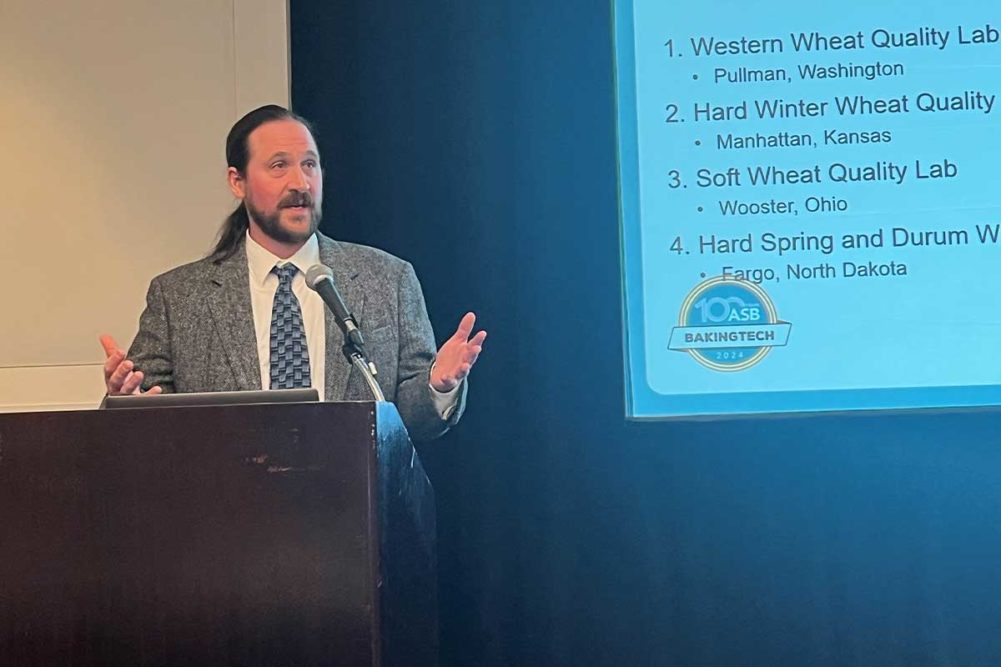CHICAGO — Because the quality and attributes of flour can vary by season and variety, it’s important for bakers to understand what works best in their products. One tool that can help them determine flour quality is Solvent Retention Capacity (SRC) testing, said Sean Finnie, director of the Western Wheat Quality Laboratory with the US Department of Agriculture’s (USDA) Agricultural Research Service.
He spoke about SRC testing at the American Society of Baking’s BakingTech 2024 conference, held Feb. 27-29. He is part of a team that works to improve wheat quality by identifying desirable traits, testing for them and working with breeders to enhance those traits.
“The way I see bakers using SRC data is the ability to make a profile of the flour you want,” Finnie said. “I think inherently bakers can look at and touch dough and know when something’s wrong. … If I were a baker, I would look at SRC data as a way of quantifying the inherent ability that you could just touch and feel when those are off, but you'll know some issues before you actually make the dough.”
If bakers have a particular wheat flour they like, SRC testing would provide the flour properties of that wheat and could help bakers make a profile of it.
“You can customize what your profile is and help identify attributes that make the flour more consistent from lot to lot,” Finnie said.
SRC tests provide information on how the various components in the flour, such as starch, gluten, fiber and lipids, interact under conditions commonly found in baked products, such as a high or low pH or high sugar concentration. These conditions provide information on how flour polymers associate with each other, and how they contribute to product quality.
Finnie works at one of four wheat quality labs in the United States that are focused on enhancing the quality of wheat. The group is currently working on its five-year plan to determine what research to focus on.
“The five-year plan encompasses stakeholder research initiatives,” he explained. “If there's things that would benefit the industry as a whole that you would like the USDA to focus on, this is a good time to mention it to me or the other directors of the labs.”





